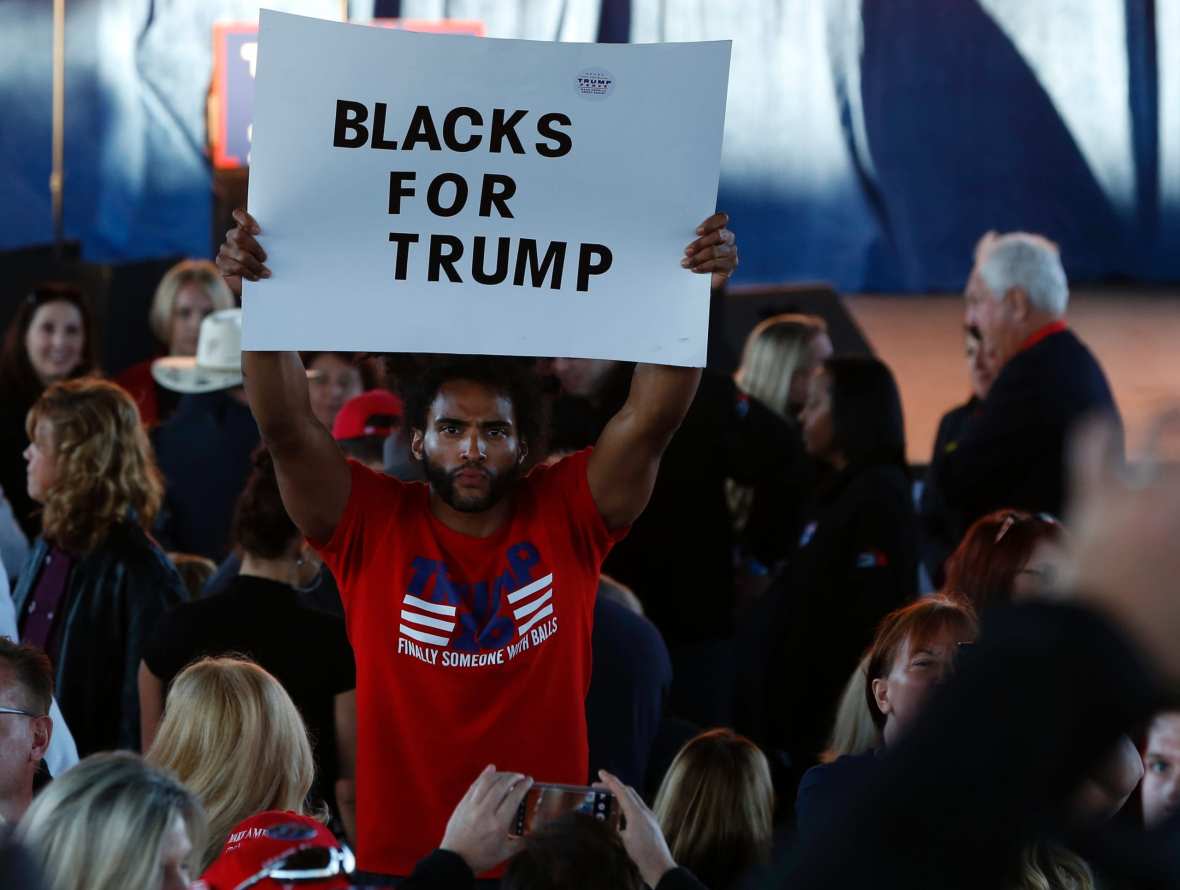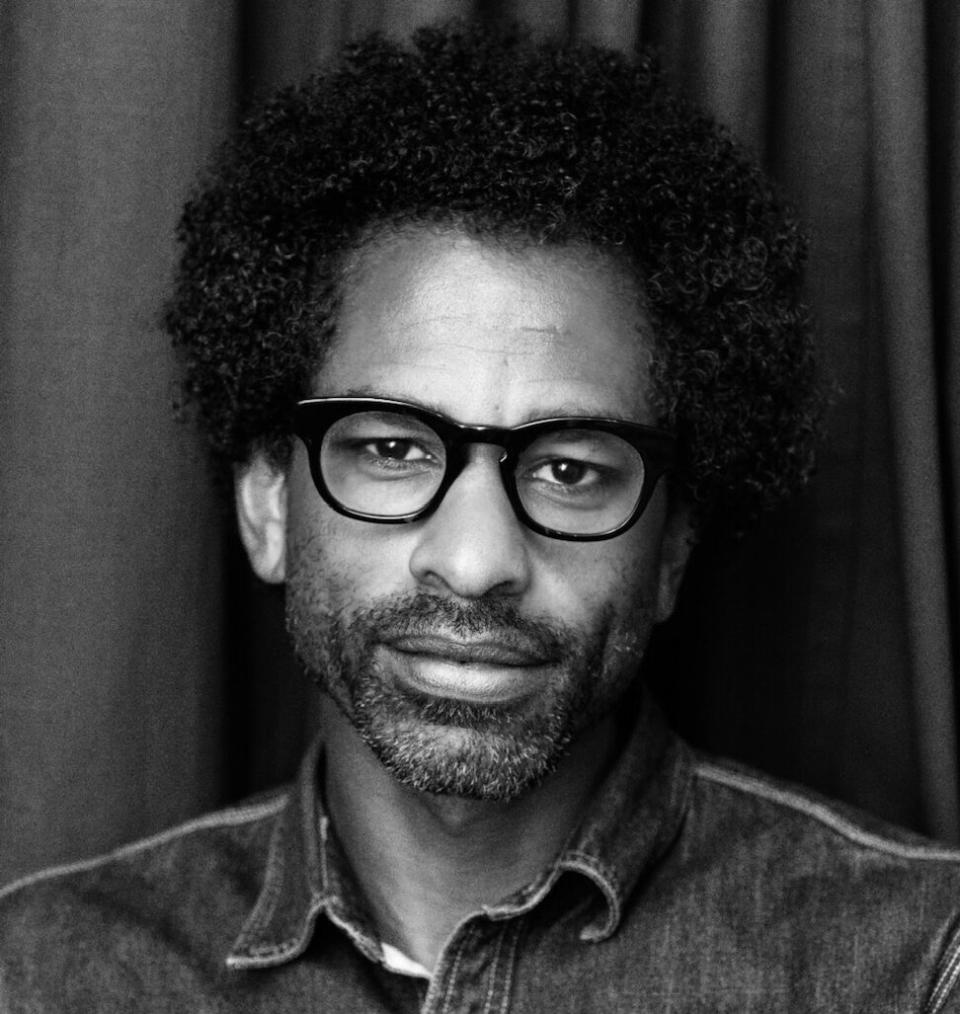Let’s talk about fictional Black characters who could be Trumpers

- Oops!Something went wrong.Please try again later.
- Oops!Something went wrong.Please try again later.
OPINION: From Alonzo Harris (“Training Day”) to Andre Logan (“Get Out”), here are some Black fictional characters I could see supporting Trump.
Editor’s note: The following article is an op-ed, and the views expressed are the author’s own. Read more opinions on theGrio.
There’s lots of talk about Black voters shifting over to Trump but it’s just talk. The leading scholar on Black Republicanism, Leah Wright Rigueur of Johns Hopkins University, the author of “The Loneliness of the Black Republican,” says most Black people “will not choose the Republican Party because, one, they believe Republicans are racist and racially antagonistic, and two, there are no [Republican] policies that they see affecting their day-to-day lives for the better.”
Many thoughtful political analysts think Trump will end up with around 12-18% of the Black vote, which is around what Republican presidential candidates have typically gotten when they weren’t running against a Black presidential candidate. But, as disgusting as it seems, that means just under one-fifth of Black voters are Trumpers. As much as we might look down on them, they exist. Now I refuse to talk to them outside of Twitter (I will never call it X) because they’re anti-Black. So I’m going to talk about which famous Black fictional characters might support Trump, and I’ll use some of Rigueur’s research to help explain why. I’m doing it that way because if I talk too much about real Black Trumpers I’ll probably vomit.

Alonzo Harris from “Training Day,” played by Denzel Washington. Harris was law enforcement and Trump support is strong among the pigs, excuse me, I mean, among officers. That’s one part of why they say ACAB. Trump’s enthusiastic support for the police and their right to be violent has been made clear. Plus, for Harris, as someone who bases his life around toxic masculinity and masculine displays of strength, Trump’s cartoonish display of hypermasculinity would be attractive. Trump’s performance of masculinity is a big draw for many of his supporters.
Roc Emerson from the TV show “Roc,” played by Charles Dutton. Roc was a no-nonsense garbage collector in Baltimore who knew firsthand about the troubles of the streets—episodes of this amazing show dove into the war on drugs and guns. Rigueur (in an article co-authored by Theodore Johnson) writes, “The Black Trump supporter is likely to be a working-class or lower-middle-class Black man, over the age of 35, and interested in alternative approaches to addressing what ails Black America.” That’s Roc—working class, older, fully aware of the troubles of Black America and desperate for new answers. (Trump ain’t providing them answers but Black Trumpers are animated by the notion that Democrats haven’t solved our problems so that makes them a problem.) We often think of wealthy Blacks as Trumpers, but most of his Black supporters are working class or close to it. They’re people who’ve been around and seen Black America’s troubles for decades. Rigueur and Johnson continue, “These voters tend to be more receptive to core messages of self-determination, financial success as a function of hard work, and personal responsibility, especially when conveyed in a plainspoken, hypermasculine manner.” Roc’s character was all about the relationship between hard work and financial success—the show was about how he was a hard-working blue-collar man and his brother, the jazz musician, never had much. I think we need to keep in mind that Black Trumpers aren’t always rich.
Carlton Banks from “The Fresh Prince of Bel-Air” (portrayed by Alfonso Ribeiro) or “Bel-Air” (portrayed by Olly Sholotan). Because even though Black Trumpers aren’t always rich, sometimes they are. When I polled Twitter on this question—which Black fictional characters would be Trumpers?—Banks’ name came up a ton. (So did George Jefferson from “The Jeffersons,” who was upper middle class in the ’70s.) Banks fits with Rigueur’s research in that the Black Trump voter has typically “lost faith in government’s ability to address the plight of Black America and believes the key to racial equality is economic empowerment.” So it’s people who believe that the answer to racial oppression is not to ask the government for a handout or not to ask the government to pass a law. It’s to go out and make a lot of money. Banks definitely feels like someone who thinks that money will protect him from racism.
Stephen from “Django Unchained,” played by Samuel L. Jackson; Uncle Ruckus from “The Boondocks,” voiced by Gary Anthony Williams; and Clayton Bigsby from “Chappelle’s Show,” played by Dave Chappelle. They’re the ultimate Toms in all of fictional Black America. The embodiment of Black self-hatred. They’re the sort of fictional house Negroes who if massa got sick would say, “We sick?” I know this is some time-shifting madness because Stephen existed in the 1800s but consider this my way of saying that some Black Trumpers are cooning. As if aligning themselves with whiteness will protect them from racism. Also: Andre Logan from “Get Out” who was played by LaKeith Stanfield. That brother was lobotomized.
Recommended Stories
Black politicians who switch to the Republican Party are betraying their voters
State Rep. Mesha Mainor switches parties, becomes only Black member of Georgia GOP
Dear Republicans, stop playing this game of ‘we have a Black guy, too’
One thing you did not see on this list were Black women (even though several suggested Hilary Banks from “The Fresh Prince of Bel-Air,” Whitley Gilbert from “A Different World” and Clair Huxtable from “The Cosby Show”). But there’s a reason why there’s no Black women here. According to Rigueur and Johnson, “Black women have been particularly resistant to Trump’s capitalistic, individualist appeals… Black women are least likely to vote Republican. This is because Black women are more policy-oriented when examining presidential candidates than Black men—who place more weight on candidates’ attributes such as experience, race, and persona.” This makes sense—Trump’s appeal is not about policy. It’s about personality. If you like Trump it’s because you like him and you like how his personality is starkly different than anything we’ve ever seen in politics. Rigueur and Johnson say Black Trumpers are “more amenable to Trump’s theatric masculinity and his mythology of being a self-made billionaire… They prefer his crude, straightforward manner to politicians’ disingenuous placations.”
It’s telling that while most Black men are not fooled by Trump’s toxic masculinity foolishness, almost no Black women are.

Touré is a host and Creative Director at theGrio. He is the host of Masters of the Game on theGrioTV. He is also the host and creator of the docuseries podcast “Being Black: The ’80s” and the animated show “Star Stories with Toure” which you can find at TheGrio.com/starstories. He is also the host of the podcast “Toure Show” and the podcast docuseries “Who Was Prince?” He is the author of eight books including the Prince biography Nothing Compares 2 U and the ebook The Ivy League Counterfeiter.
More must-reads:

